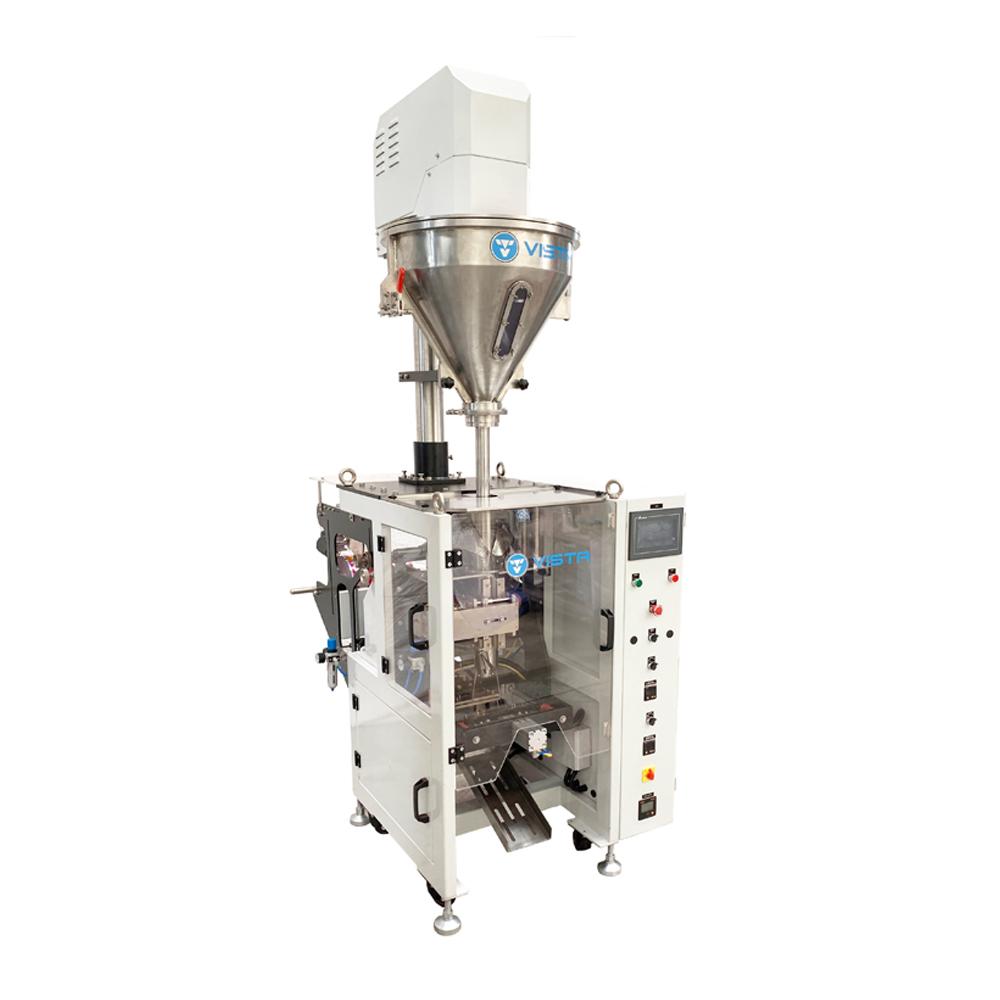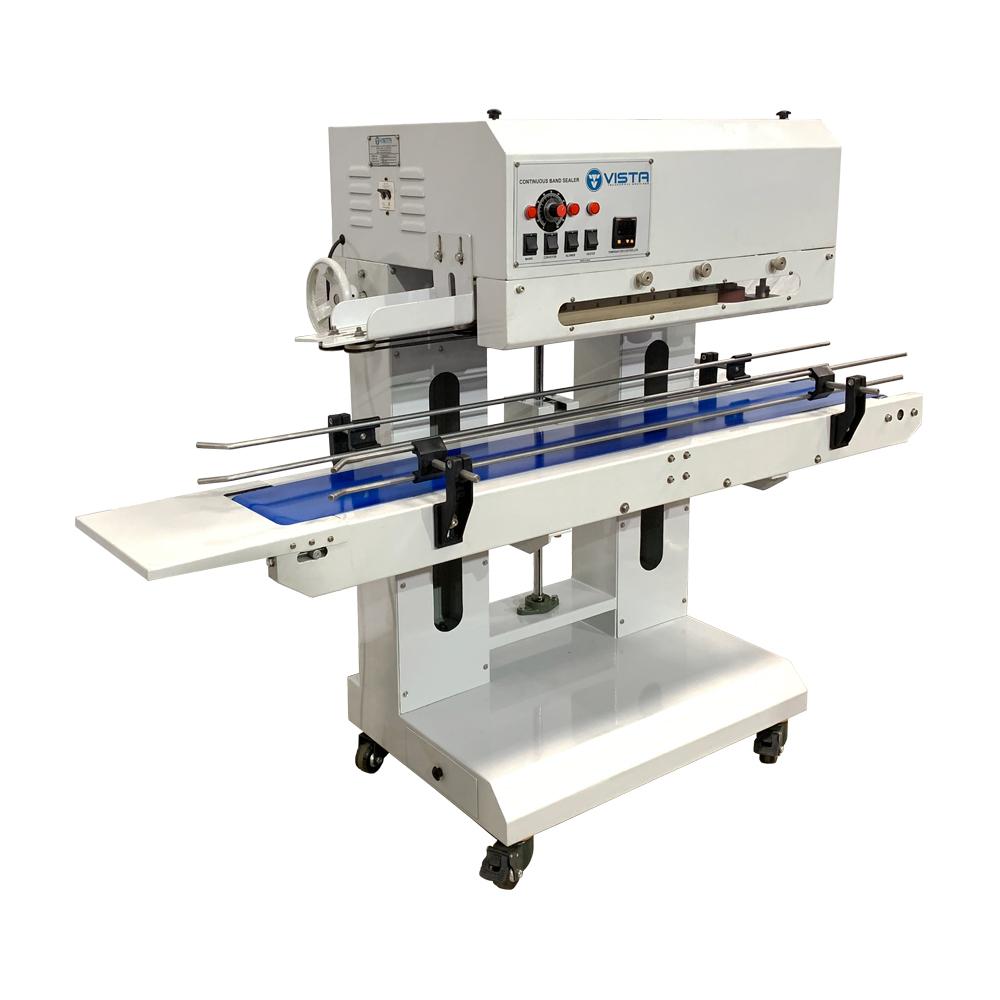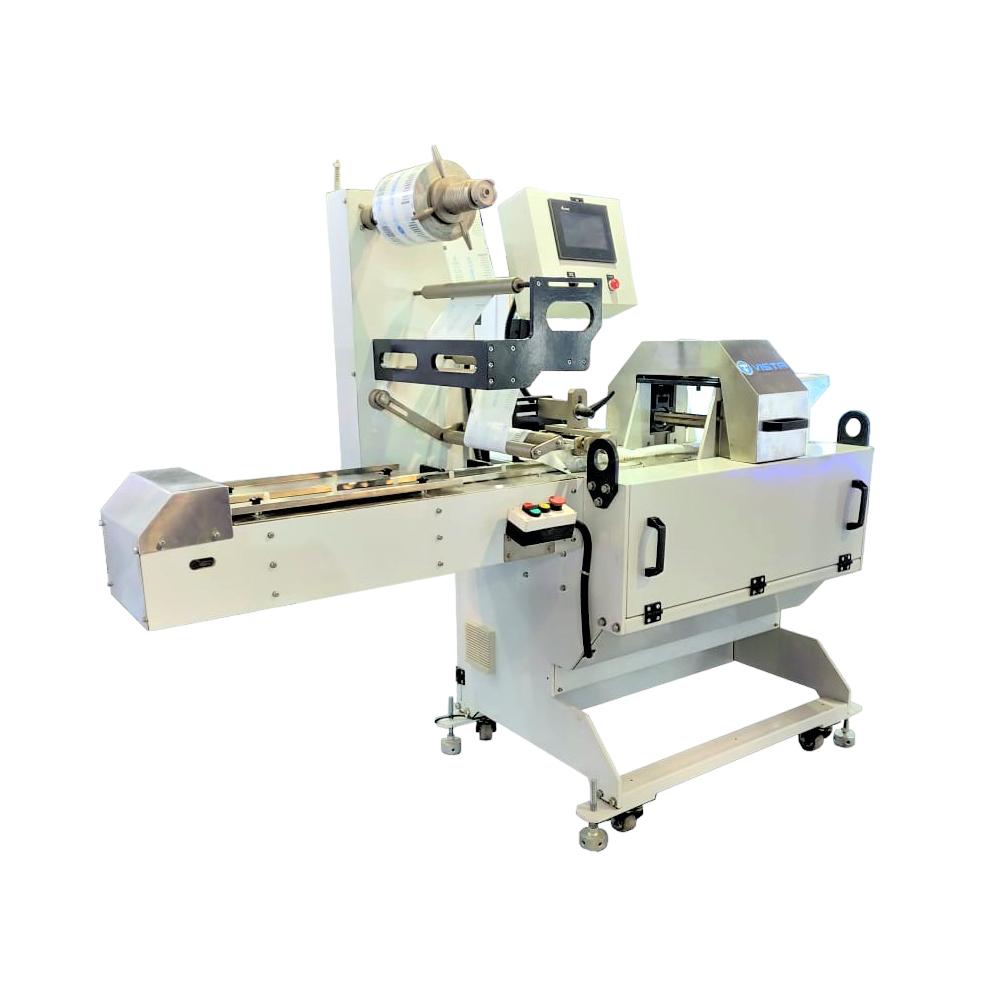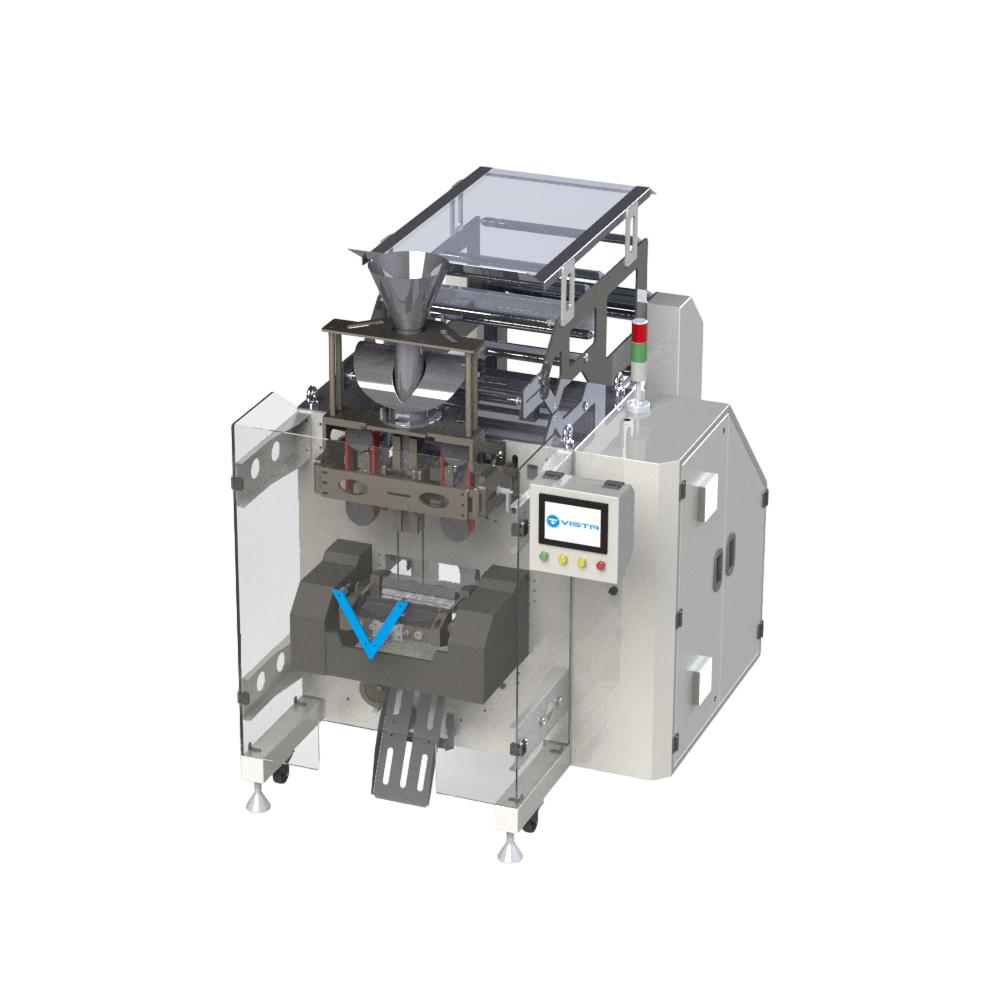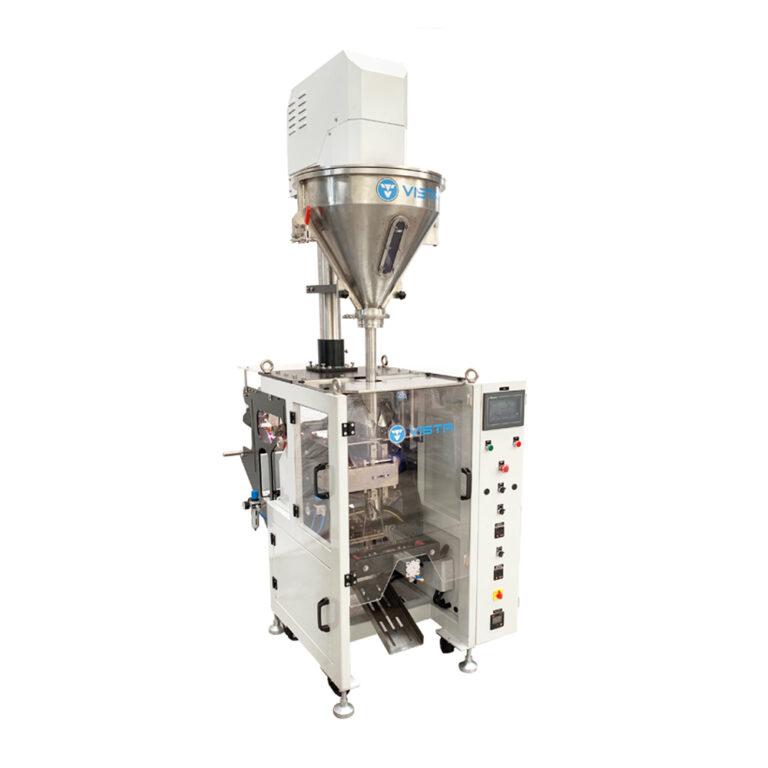Table of Contents
- Introduction to Packaging Machines
- Types of Packaging Machines
- Filling machines
- Sealing machines
- Labeling machines
- Wrapping machines
- Coding machines
- Benefits of Packaging Machines
- Increased Efficiency and Productivity
- Improved product protection
- Enhanced Accuracy and Consistency
- Cost Savings
- Key Features to Consider
- Speed and throughput
- Flexibility and customization
- Ease of use and maintenance
- Quality of Packaging
- Industries Using Packaging Machines
- Food and beverage
- Pharmaceutical
- Cosmetics and personal care
- Household Products
- Automotive
- Choosing the Right Packaging Machine
- Assessing Production Requirements
- Evaluating machine specifications
- Considering Budget and ROI
- Maintenance and Troubleshooting
- Regular maintenance practices
- Common issues and troubleshooting tips
- Future Trends in Packaging Machines
- Automation and Robotics
- Sustainable packaging solutions
- Integration with data analytics and IoT
- Conclusion
- FAQs
Packaging Machines: Revolutionizing Industries
Packaging machines play a crucial role in various industries, ensuring products are efficiently and securely packaged for distribution. From filling and sealing to labeling and wrapping, these machines streamline the packaging process, offering numerous benefits to businesses. In this article, we will explore the world of packaging machines, their types, benefits, key features, industry applications, choosing the right machine, maintenance, future trends and more.
Introduction to Packaging Machines
Packaging machines, as the name suggests, are equipment designed to automate and optimize the packaging process. They are utilized across industries to package different types of products, ranging from food and beverages to pharmaceuticals and household goods. These machines are capable of performing tasks such as filling containers, sealing packages, applying labels, and wrapping products with speed, precision, and consistency.
The importance of packaging machines cannot be overstated. In today’s fast-paced world, businesses rely on efficient packaging to meet the demands of consumers and ensure their products reach the market in a timely manner. Packaging machines not only save time and effort but also contribute to the overall quality and safety of the packaged products.
Types of Packaging Machines
Packaging machines come in various types, each catering to specific packaging needs. Let’s explore some of the most common types:
Filling Machines
Filling machines are used to accurately fill containers, bottles, or packages with a predetermined quantity of a product. These machines can handle a wide range of liquid, solid, or powdered substances. The filling process can be gravity-based, volumetric, or achieved through other methods, depending on the nature of the product being filled.
Sealing Machines
Sealing machines are responsible for creating a secure seal on packages to prevent leakage, contamination, or tampering. They can use various sealing techniques, such as heat sealing, induction sealing, or adhesive sealing, depending on the packaging material and product requirements.
Labeling Machines
Labeling machines apply labels to products or packaging containers. They ensure accurate placement and alignment of labels, which are essential for product identification, branding, and regulatory compliance. Labeling machines can handle different label types, including self-adhesive labels, wrap-around labels, and tamper-evident labels.
Wrapping Machines
Wrapping machines are used to wrap products or packages in protective materials such as shrink films or stretch films. These machines ensure tight and secure wrapping, providing protection against external factors such as moisture, dust, and physical damage during transportation and storage.
Coding Machines
Coding machines are utilized to imprint essential information, such as batch numbers, expiry dates, or barcodes, onto product packaging. They ensure accurate and legible marking, enabling easy traceability, inventory management, and compliance with labeling regulations.
Benefits of Packaging Machines
Investing in packaging machines brings numerous advantages to businesses. Let’s explore some of the key benefits:
Increased Efficiency and Productivity
Packaging machines automate manual packaging processes, significantly increasing efficiency and productivity. They can handle large volumes of products in a shorter time, reducing labor requirements and minimizing human errors. With higher production rates, businesses can meet customer demands more effectively and optimize their operational efficiency.
Improved Product Protection
Packaging machines provide reliable and consistent packaging, ensuring better product protection during transit and storage. They can accurately measure and dispense the right quantities of products, reducing the risk of overfilling or underfilling. Additionally, sealing machines create secure seals that prevent leaks, spoilage, or tampering, preserving the quality and integrity of the packaged items.
Enhanced Accuracy and Consistency
Manual packaging processes can vary in terms of accuracy and consistency, leading to inconsistent product presentation and potential quality issues. Packaging machines offer precise and consistent packaging results, ensuring uniformity in product appearance, weight, and labeling. This consistency enhances brand reputation and customer satisfaction.
Cost Savings
While the initial investment in packaging machines may seem significant, they offer long-term cost savings. By automating packaging processes, businesses can reduce labor costs, minimize material wastage, and optimize packaging efficiency. Moreover, the accurate dispensing and sealing capabilities of these machines reduce product loss due to incorrect measurements or package damage.
Key Features to Consider
When selecting a packaging machine for your business, it’s important to consider several key features. These features will vary depending on your industry, product requirements, and production volume. Here are some essential factors to evaluate:
Speed and Throughput
The speed and throughput of a packaging machine are crucial considerations, especially if you have high-volume production requirements. Assess the machine’s packaging speed in terms of units per minute or packages per hour and ensure it aligns with your production targets.
Flexibility and Customization
Look for packaging machines that offer flexibility and customization options. Different products may require specific packaging formats, sizes, or materials. A machine that can accommodate these variations and be easily adjusted or reconfigured will provide versatility for your packaging needs.
Ease of Use and Maintenance
Consider the user-friendliness of the machine and the ease of training your operators to use it effectively. Additionally, assess the maintenance requirements and availability of spare parts. A machine that is easy to operate and maintain will minimize downtime and ensure uninterrupted production.
Quality of Packaging
The quality of packaging produced by the machine is crucial to protect your products and maintain their presentation. Examine the machine’s sealing, labeling, or wrapping capabilities to ensure it consistently delivers secure and professional-looking packaging.
Industries Using Packaging Machines
Packaging machines find applications in a wide range of industries. Here are some sectors that extensively utilize these machines:
Food and Beverage
In the food and beverage industry, packaging machines are employed to package various products such as snacks, beverages, sauces, condiments, and frozen foods. These machines ensure hygienic packaging, extended shelf life, and compliance with food safety regulations.
Pharmaceutical
Pharmaceutical packaging machines play a critical role in the safe and efficient packaging of medicines, tablets, capsules, syringes, and medical devices. They adhere to stringent quality standards, ensure accurate dosing, and provide tamper-evident packaging to protect the integrity of pharmaceutical products.
Cosmetics and Personal Care
Packaging machines are widely used in the cosmetics and personal care industry to package items such as lotions, creams, perfumes, and beauty products. These machines enable precise dispensing, labeling, and sealing, ensuring product integrity, attractive presentation, and compliance with cosmetic regulations.
Household Products
Packaging machines are utilized in the household products industry to package items like cleaning agents, detergents, toiletries, and home care products. These machines facilitate efficient packaging, accurate labeling, and secure sealing, ensuring convenience and safety for consumers.
Automotive
In the automotive industry, packaging machines are employed to package automotive parts, components, and accessories. These machines enable protective packaging, efficient labeling, and secure sealing, ensuring that the automotive products reach their destination in optimal condition.
Choosing the Right Packaging Machine
Selecting the right packaging machine for your business requires careful evaluation. Consider the following steps to make an informed decision:
Assessing Production Requirements
Evaluate your production volume, packaging needs, and desired packaging formats. Determine the speed, capacity, and flexibility required from the machine to meet your production targets effectively.
Evaluating Machine Specifications
Research and compare different packaging machines available in the market. Consider factors such as machine dimensions, power requirements, compatibility with packaging materials, and available customization options. Ensure the machine meets your specific requirements and aligns with your production processes.
Considering Budget and ROI
Set a budget for your packaging machine investment, considering both the initial cost and long-term savings. Assess the return on investment (ROI) by estimating the cost savings achieved through increased efficiency, reduced labor costs, and minimized product loss. Choose a machine that offers the best value for your investment.
Maintenance and Troubleshooting
To ensure the optimal performance and longevity of your packaging machine, proper maintenance and troubleshooting are essential. Here are some key practices:
Regular maintenance practices
Follow the manufacturer’s guidelines for routine maintenance tasks such as cleaning, lubrication, and calibration. Conduct periodic inspections to identify and address any wear and tear, loose parts, or potential issues.
Common issues and troubleshooting tips
Familiarize yourself with common issues that may arise with the machine, such as jammed conveyor belts, misaligned labels, or sealing malfunctions. Keep a troubleshooting guide handy and train your operators on basic problem-solving techniques to minimize downtime and maintain productivity.
Future Trends in Packaging Machines
The field of packaging machines continues to evolve, driven by technological advancements and changing consumer demands. Here are some future trends to watch out for:
Automation and Robotics
Automation and robotics will play a significant role in packaging machines, enabling faster, more precise, and efficient packaging processes. Robotic arms, automated product handling, and intelligent systems will enhance speed, accuracy, and customization capabilities.
Sustainable Packaging Solutions
With increasing environmental consciousness, the focus on sustainable packaging will grow. Packaging machines will incorporate eco-friendly materials, energy-efficient processes, and recycling-friendly designs to reduce waste and carbon footprint.
Integration with data analytics and IoT
Packaging machines will integrate with data analytics and the Internet of Things (IoT) to enable real-time monitoring, predictive maintenance, and performance optimization. This integration will provide valuable insights for process improvement, inventory management, and supply chain optimization.
Conclusion
Packaging machines are indispensable in modern industries, offering efficiency, accuracy, and product protection. From filling and sealing to labeling and wrapping, these machines streamline the packaging process and provide numerous benefits. By understanding the types, benefits, key features, industry applications, and future trends of packaging machines, businesses can make informed decisions and enhance their packaging operations.
FAQs
A. Can packaging machines handle different types of products?
Yes, packaging machines are designed to handle various types of products. They can accommodate liquids, powders, solids, and even delicate items. Depending on the specific machine and its attachments, it can be customized to suit different packaging requirements.
B. Are packaging machines suitable for small businesses?
Absolutely! Packaging machines come in a range of sizes and capacities, making them suitable for businesses of all sizes, including small enterprises. There are compact and cost-effective machines available that cater specifically to the needs of small-scale operations.
C. How can packaging machines improve the shelf life of products?
Packaging machines contribute to improved product shelf life by ensuring proper sealing and protection from external factors such as moisture, air, and contaminants. These machines can create airtight seals and use packaging materials that provide a barrier against oxygen and other harmful elements, extending the shelf life of perishable products.
D. Can packaging machines accommodate different packaging sizes?
Yes, many packaging machines are designed to handle a wide range of packaging sizes. They can be adjusted or customized to accommodate various package dimensions, allowing flexibility in packaging different product sizes, from small sachets to large containers.
E. Are packaging machines difficult to operate?
Packaging machines are designed with user-friendliness in mind. They come with intuitive interfaces and controls that are easy to learn and operate. Manufacturers also provide comprehensive training and documentation to ensure operators can effectively use the machines.
F. What maintenance practices are required for packaging machines?
Regular maintenance practices for packaging machines include cleaning, lubrication, inspection of moving parts, and calibration. It is important to follow the manufacturer’s guidelines and schedule routine maintenance tasks to keep the machine in optimal working condition.
G. Can packaging machines integrate with existing production lines?
Yes, packaging machines can be integrated into existing production lines. Manufacturers often provide options for customization and compatibility to ensure seamless integration with other equipment and processes.
H. Are packaging machines cost-effective in the long run?
While packaging machines require an initial investment, they offer long-term cost savings. These machines increase efficiency, reduce labor costs, minimize product loss, and optimize packaging processes, resulting in improved profitability and return on investment over time.
I. Can packaging machines handle fragile products without damage?
Yes, packaging machines can handle fragile products with care. Specialized attachments and mechanisms, such as gentle handling conveyors or cushioning systems, can be added to the machines to ensure delicate items are packaged without damage.
J. Can packaging machines accommodate different packaging materials?
Yes, packaging machines can work with a variety of packaging materials, including plastics, glass, metal, and paper-based materials. The machines can be adjusted or equipped with specific modules to handle the different characteristics and requirements of each packaging material.
Remember, choosing the right packaging machine for your specific needs is crucial, so it’s always recommended to consult with experts or manufacturers to find the best solution for your business.
Categories
Recent Posts
